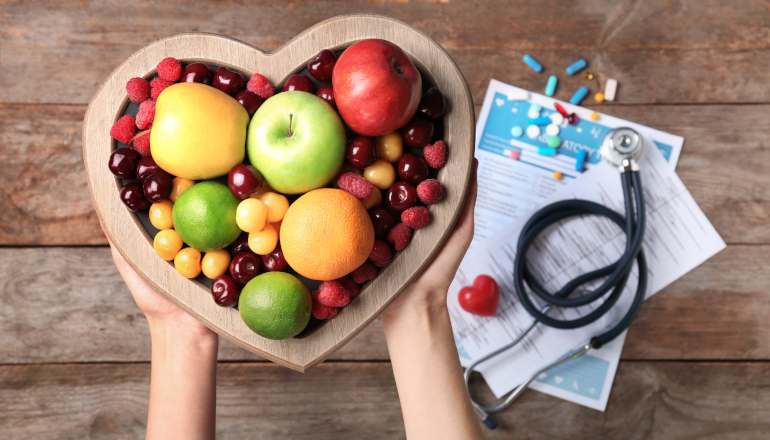
Anyone who lived through the low-fat movement of 1990s will certainly have a degree of fear when their doctor mentions cholesterol. Cholesterol is one of the most recognized compounds today due to its link to cardiovascular disease.
But cholesterol, and its role in heart disease, is an extremely complicated topic that we truly do not understand yet. It has more subplots and history than Game of Thrones. Conspiracy theories even float around the internet that accuse pharmaceutical companies of creating the link between cholesterol and heart disease — and then selling doctors on their cholesterol-lowering drugs. But while conflicts of interest always will exist, I believe most doctors are smart people who want the best for their patients.
Based on my experience as a nutrition coach and as a patient, I have some thoughts on how you can reduce your cholesterol (without taking the stereotypical cholesterol medication). So, first, let’s dive into the science behind what cholesterol is and what it does, and then we’ll get into the science and research of how to change your cholesterol levels.
My Personal Cholesterol Story (and What Your Doctor Is Thinking)
I have more than a professional interest in cholesterol levels. Without specific intervention, my LDL cholesterol levels are in the 300 range. I remember the days where keeping LDL, the so called “bad” cholesterol, under 130 milligrams per deciliter was considered standard practice. But when John Hopkins Medicine released their 2018 guidelines, based on current evidence available, they recommended under 70 milligrams per deciliter. John Hopkins would be shaking his head at me in disappointment.
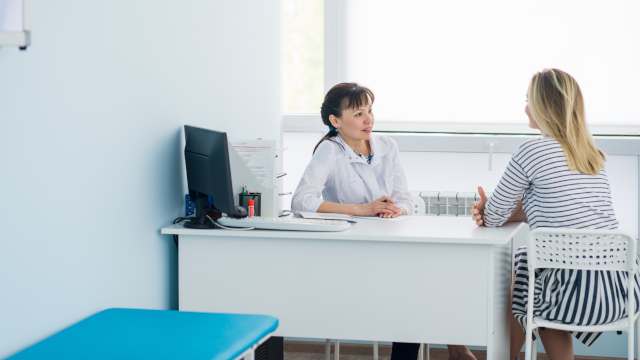
But I was able to improve my cholesterol — because not only do I want to live a long life, but I also needed to qualify for life insurance to protect my family at a reasonable cost. As an aside, if you wish to see if something is important or not, follow the money. Life insurance rates begin to skyrocket if you have high cholesterol. This means companies recognize a link to cholesterol and heart disease because it effects their pockets.
Before we dive into exactly what I mean by “specific intervention,” I want to stress the importance of working with your doctor on this topic — and having an honest conversation.
A big change in how doctors approach cholesterol has been a focus on the patient’s medical history. The patient’s entire medical history as well as family history is weighed when discussing how vital certain cholesterol levels should be to keep someone’s risk of cardiovascular disease at a minimum. If a person with normal blood pressure, healthy weight, and no other red flags shows a slightly elevated cholesterol level, there may not be a rush to go on strong medication.
If your doctor looks at your blood work and says your cholesterol needs to be lowered, have a discussion before filling a prescription for a statin. Statins are a family of cholesterol-lowering drugs that have potential side effects. They aren’t evil, but if you can avoid them, you should.
In my experience, most doctors will agree to discuss lifestyle changes and alternative options before starting a drug. Typically, they will retest your levels in about six months and then adjust the plan based on those numbers. If your numbers are extremely high to begin with, though, they may deem it unwise to go without cholesterol medication.
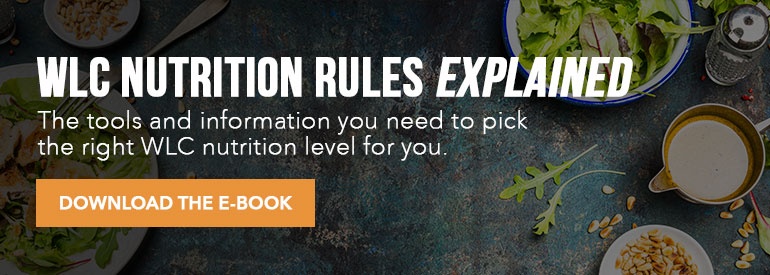
How Cholesterol Got So Confusing
LDL cholesterol, the “bad” stuff, is just one part of a complex process that is happening in our bodies. When we use terms like LDL, HDL, and VLDL, we are actually referring to the carrier molecules in your body. LDL, HDL, and VLDL are all examples of the car that is driving your cholesterol passenger around. It’s like a ride sharing app, just with lots of different options.
We oversimplify the process because we don’t completely understand the underlying mechanisms. So, we refer to how certain numbers correlate with our idea of health. But, remember, blood work and lab values are simply a snapshot of one moment in time. (And usually that moment involves being pissed off while you’re in the doctor’s office getting blood drawn because you’ve fasted for twelve hours or more.)
The cholesterol process is so complex that we break it down by how it may play a role in cardiovascular disease. It’s true that higher LDL numbers are associated with heart disease, albeit not all the time. And higher HDL, or “good” cholesterol, is associated with less heart disease, but again, not all the time. In taking this perspective, we are taking our best shot at keeping our disease risk to a minimum.
We actually need cholesterol, because it is involved in vital parts of our body like cell membrane integrity and hormones. However, with our modern lifestyle and genetics, our cholesterol numbers may be altered in way humans haven’t dealt with before. When I discuss cholesterol and other lab values with clients, we always start with the big picture. A diet full of fast food combined with no physical activity and poor sleep, offer us a clear starting point for seeing improvement on lab values.
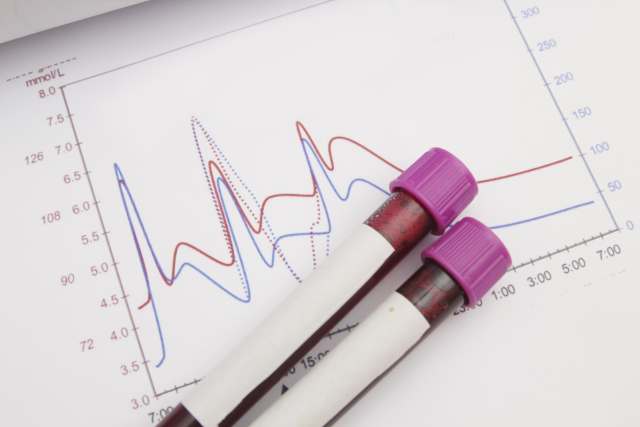
In other words, simply embracing principles like the Whole Life Challenge can make everything better. Most of the time, a healthier lifestyle will clean up all your issues, especially when it comes to yearly physicals with your doctor. That being said, sometimes there is a genetic link or specific reason that your values are off, and these need to be further investigated and that’s where “specific interventions” (i.e. supplements) can also come into play.
After all, my LDL cholesterol was over 300 while living a healthy lifestyle. Thanks, Mom. Thanks, Dad. But I did manage to get my cholesterol down without cholesterol medication like statins. So, how did I do it? First, let’s look at the tools you have at your disposal, then I’ll outline exactly what I did.
How to Reduce Your LDL without Cholesterol Medication (i.e. Statins)
1. Fiber
Your doctor may simply want to reduce your LDL levels, even though you have no other issues. Statin drugs, as I previously mentioned, will do the job. However, I’ve seen many people develop neuropathy, joint and muscle pain, and liver issues related to statins. As with any drug, there are side effects that may affect certain people. So, why not at least try to avoid them or be on a lower dose?
An easy defense against high LDL is fiber. Here’s how it works:
- Bile is produced using cholesterol, and bile helps you digest fats.
- After digesting those fats, your body typically tries to reabsorb bile and recycle its basic ingredients, including the cholesterol.
- Fiber in the food you eat may help prevent your bile from being resorbed because it acts like a bodyguard by binding to the bile. It is then excreted as waste.
- Your liver must then produce new bile with new cholesterol. This process helps keep cholesterol down because is being used as it is being made and there is no time for storage.
- Therefore, fiber will reduce overall cholesterol levels floating around in our blood.
So, if you are in the process of making healthier changes, eating more fruits and vegetables will cover your bases when it comes to fiber. (Note: this article that I wrote goes in-depth into the why and how of fiber.)

2. Plant Sterols
A supplement I take, that has strong evidence of lowering cholesterol, is plant sterols. They have become a go-to for me, as there is very little evidence of any side effects.
Plant sterols are a plant’s version of cholesterol. They are similar in structure to our cholesterol, and therefore compete for absorption in our digestive system. If our body absorbs these supplemental plant sterols, it then prevents cholesterol from being reabsorbed. So, similar to the fiber mechanism, this lowers our blood cholesterol.
Naturally, eating more plants will give you more plant sterols. So, upping your vegetable intake is good not only for increased fiber, but also for the sterols. But for those of us who are special and need intervention beyond diet, taking plant sterols as a supplement may be warranted. Studies usually use 2g per day, but there is some evidence that taking even more, up to 8-10g per day, can create a bigger benefit.
My advice is to start around 2g per day with a meal, eat plenty of vegetables, and retest your lab values. Give it at least three months before retesting unless otherwise advised by your doctor.
3. Sytrinol
Sytrinol is a proprietary blend of citrus and palm compounds and shows some initial promise. While only a few studies have been done, they have demonstrated that sytrinol can reduce LDL cholesterol by as much as 20%. 300mg per day is the tested dose. No major reported side effects have been reported.

4. Red Yeast Rice
Red yeast rice (RYR) is exactly what it is named: a yeast that grows on rice. I have previously mentioned statins as a go-to drug for cholesterol, and RYR naturally contains lovastatin, which is also a prescription drug.
The advantage of the prescription version is that you know the exact dose you are consuming. There is a lot of controversy surrounding RYR because the supplement industry is widely unregulated, and the amount of lovastatin contained varies widely from product to product.
The proposed benefit of RYR versus the prescription is that RYR is more natural and may have fewer side effects. There is also some evidence that when taken with plant sterols, RYR may have a greater effect. But you won’t know how much of the RYR you are getting from pill to pill, and there have been reports of unwanted toxins detected that may be harmful to your kidneys.
Statins and RYR both work by blocking a critical step in cholesterol synthesis. While RYR is a more natural way to do it, the pros may outweigh the cons.
5. Niacin
Niacin, otherwise known as vitamin B3, is another way to lower LDL cholesterol and perhaps raise HDL. Niacin must be prescribed by a doctor and is typically taken at very high doses. This strategy is less common these days as side effects such as a rush of flushing of the face occur.
Raising our HDL, or good cholesterol, should be a good thing, but raising HDL via niacin or drugs does not appear to lower the risk of cardiovascular disease. Perhaps just raising the number does not take into account the functionality of the molecule. To use an analogy, having more football players on a team does not automatically make the team better. You need good football players, not just people who put on a uniform.
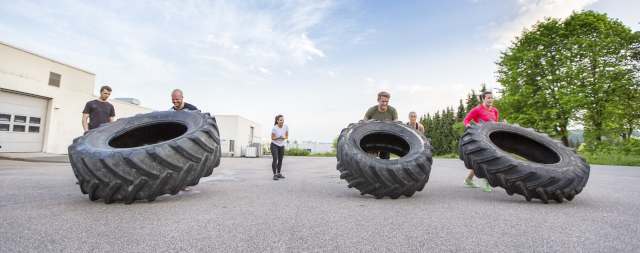
6. Exercise
To date, exercise has proven to be the best method to increase your “good” HDL cholesterol. Since exercise has additional and wide-ranging benefits, it may be the most natural and beneficial “supplement” you can take.
How I Lowered My Cholesterol Without Cholesterol Medication
I’m sure you can tell by now that the relationship between cholesterol and heart disease is still in the early stages of study. Even more complicated is how everything ties together and what exactly lowering or raising lab values even means for your health.
I will tell you what I did, but this is not necessarily what I would recommend to just anyone. These were my choices as a bit of an experiment, but you should discuss any plan you have with your doctor. And if you choose to use supplements, stay up to date on research as things change each year.
So, here’s what I did to lower my cholesterol:
- I took plant sterols, about 2 grams per day split into 1 gram at breakfast and 1 gram at dinner. It’s important to take plant sterols with food because its mechanism is involved with the digestive process.
- I took 300mg of Sytrinol per day, with dinner.
- I also took red yeast rice every other day at a dose of 1200mg with dinner.
- I continued to eat my normal (already healthy) diet.
- I exercised about 4 days per week.
The result? My “bad” LDL cholesterol went from 220 to 90 in about two months. My “good” HDL remained the same. I continue the regimen today.
How Should You Lower Your Cholesterol?
In order of the safest thing you can do versus potential results:
- Incorporating healthy food and exercise should come first.
- Plant sterols would be a second option.
- Red yeast rice, niacin, and other supplements such as curcumin, fish oil, algae, and garlic are generally risky or ineffective.
How you approach your cholesterol is a personal choice and one that should be researched and set up with a medical team. Your doctor will evaluate your entire medical history and help come up with a plan that’s right for you.
Prescription statins are sometimes a good option and are well tolerated in many people. However, for many of us, it’s worth a shot at making smaller changes before bringing in the cholesterol medication.



































